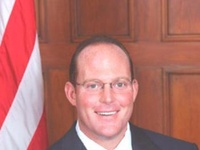1. Yes, if all parties agreed, which they did, I would have supported it. It’s the art of compromise and democracy.
2. Generally speaking, you need to get all relevant stateholders involved and move the process forward in a methodical, relevant way.
3. Any future real estate acquisitions that are currently taxable real estate to the city, the PILOT payment should be increased by that amount automatically. I can’t speculate on ballpark numbers.
4. I do not support rent control. It fails in the economic front, it fails on the fairness front, and it fails on the feasibility of implementation front.
5. I suggest we take $2 million this year from the $9 million affordable housing trust fund to supplement residents who are facing short-term rental crisis and it should be funded at a similar level in future years.
6. I think that what Cambridge needs to do is get the police on the bikes and one their feet and out of the vehicles.
7. The City Council with the leadership of the entire school committee should set some clear, academic goals for the school system and couple these goals with accountability if they’re not attained. Currently, students are the only ones held accountable.
8. Yes, but I would have allowed private clubs to continue with smoking.
9. I would have to factor the residential impact of any late night eateries. If the case can be made that the impact will be minimal, then I’ll support it. I think students are uninvolved and we have to make the case to students that if they’re for here for x amount of years, we make decisions that impact their lives.
10. The Green Street Grille.
John R. Pitkin
1. Yes. It meets many of the residents’ concerns, maintains public open space as a connector from the neighborhood to the river, and reduces heights and densities in the Banks-Athens street area to a much more appropriate scale than the current zoning.
2. The key issue is the fiscal relationship and the adequacy of Harvard (and MIT’s) payments for urban services ranging from police and fire protection to streets and public health.
3. An amount much closer to the actual cost of providing the many public services without which the University could not function.
Read more in News
College Dems Rally For Kerry




























